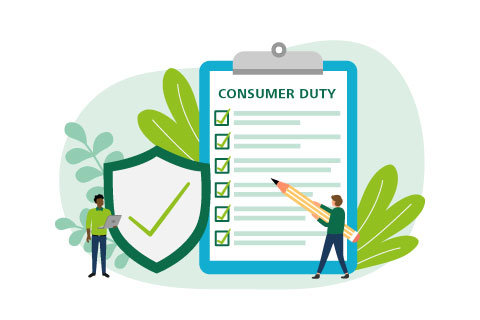Some of you may be surprised to hear that we’re already more than three months on from the start of Consumer Duty, the new regulation which gave the Financial Conduct Authority (FCA) regulatory powers to set higher and clearer standards of consumer protection.
While it is still early days, speaking with senior executives in the financial sector, the initial signals are promising, with a consensus that although the new standards have caused some concerns and the whole process has taken a number of iterations, the recommendations were generally both needed and welcomed.
Achieving this response to regulation is no small feat. Looking back at the last few months, we should consider what lessons other sectors and regulators might take about putting service culture at the heart of regulation.
Key lessons: long-term, measurement, and value.
First is the emphasis placed on the long term. Just last week, the FCA noted that the Consumer Duty is not a “once and done” exercise, but rather a long-term and continuous commitment.
As we have continuously seen in our research, firms who take a long-term approach to their service proposition see higher and more consistent levels of customer satisfaction, higher levels of productivity and better financial returns.
The second lesson is about measurement. Speaking to firms in the financial sector who have been preparing for the Consumer Duty, I heard that the regulation has encouraged better tracking, assessment and management of the issues preventing organisations from delivering great service. For example, several talked about how it helped in the board room to focus on a more service-led culture that covered the end-to-end experience rather than transactions and delivery processes; if this is the case then this is a real positive, and something to build on.
The third point is about the word outcome. The Consumer Duty places a real focus on customer outcomes, and crucially, this means prioritising consumers, ensuring communications are easily digestible and products and services are genuinely designed to meet the needs of the customer with appropriate support in a way the customer wants. Value is key and genuinely reflecting on whether the outcome is in the best interests of the consumer.
Will other sectors see their own version of Consumer Duty?
I am in a very fortunate position within the Institute because I get to see how other regulators and sectors are working and how well they are achieving better customer outcomes. This leads me to reflect on how other regulated sectors could consider how Consumer Duty has been applied across the whole service journey and to consider if and how they can replicate any of the lessons that the FCA have applied and learnt over a long period of changing and complex legislation.
For me, the biggest lesson is thinking about service by measuring yourself against the best, and from the eyes of whom you are looking to serve – the customer, considering all aspects of the whole service journey and thinking through the law of unintended consequences to avoid some of the biggest pitfalls!
Whether an organisation is operating in a regulated sector or not in a world of increasing competition and pressure on productivity – getting it right more often than not and focusing on better outcomes for customers will help you differentiate your service proposition and enable you to pull away from the pack. Something which will become even more essential in an ongoing challenging economic climate.



